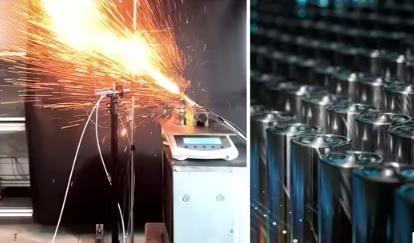lithium (chemistry)batteriesFire has always been a major safety concern for electric vehicles and electronic devices, and scientists have been exploring various methods to prevent such accidents.

Recently, a new study proposed a way to use sound to warn lithium-ion batteries of an impending fire. The researchers noted that lithium-ion batteries undergo a chemical reaction process before catching fire, resulting in a gradual increase in internal pressure and the battery begins to expand. Since the battery casing is usually hard and cannot accommodate this expansion, a safety valve in the battery ruptures to release the pressure.
In the process.The rupture of a safety valve makes a distinctive clicking and hissing sound, sort of like opening the cap of a soda bottle.
Researchers at the National Institute of Standards and Technology (NIST) have trained a machine learning algorithm that recognizes this distinctive rupture sound. To train the algorithm, the researchers worked with a lab at Xi'an University of Science and Technology to collect audio data from 38 exploding batteries. They then adjusted the speed and pitch of this audio to generate over 1,000 unique audio samples that were used to train the algorithm.
The test results show thatThe algorithm recognizes the rupture sound of an overheated battery with an accuracy of 94%.. The researchers used a variety of background noises, including footsteps, slamming doors and opening bottles, to test the robustness of the algorithm and found that only a few noises were able to interfere with the algorithm's judgment.
The researchers say the technology has the potential to develop a new type of fire alarm that could be installed in places such as homes, offices, warehouses and electric vehicle parking lots to give advance warning and provide ample time for people to evacuate.